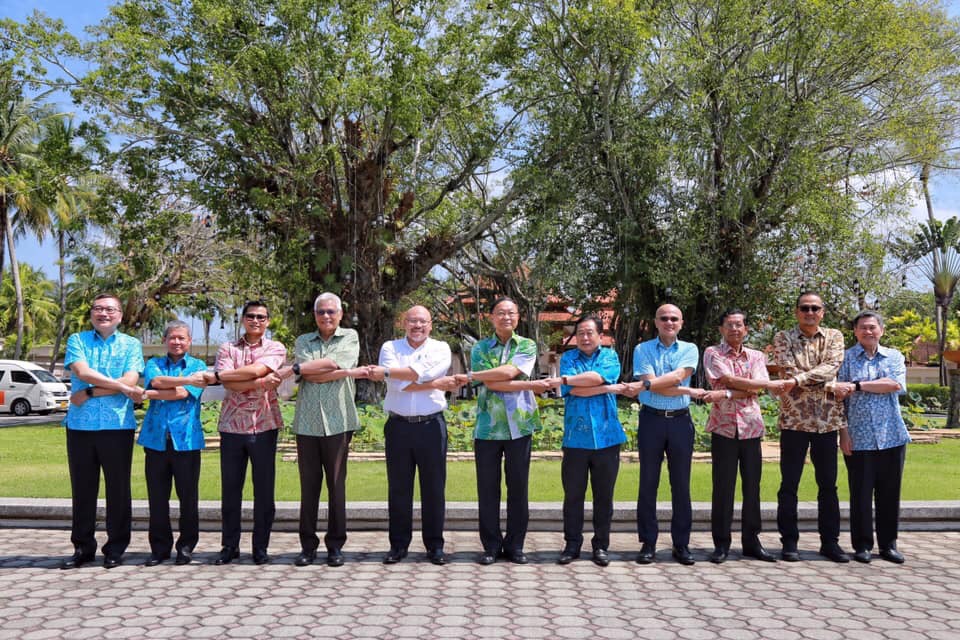Managing volatility with a smile: how tumultuous Thailand puts a stable face on ASEAN
Posted By Kaewkamol Pitakdumrongkit and Huong Le Thu on May 7, 2019 @ 11:00

Thailand is already almost halfway through its ASEAN chairmanship [1] in what has been a rather low-profile period considering political developments. In the lead-up to Thailand’s elections on 24 March, the country’s political energy was directed inwards. The results from the poll are scheduled to be announced on 9 May. It’s also an important year for other ASEAN member states. Indonesia exercised its democracy with general elections a couple of weeks ago, while the Philippines is gearing up for mid-terms.
Globally, it hasn’t been an easy-going year so far either: there are heightened uncertainties, rising protectionism and security tensions in the Korean peninsula and South China Sea, all of which could pose problems to Southeast Asian nations. In the past, Thailand has stood up to some big challenges, including during the 2008 global financial crisis, when it chaired ASEAN too. What footprint it will leave this time around?
So far, security hasn’t figured highly on this year’s host’s agenda. Take the South China Sea case. Last year, under Singapore’s chairmanship [2] and despite heightened tension in the group (although not without internal incongruity), ASEAN put a collaborative face to the game of China’s extensive claims and hailed milestone progress in arriving at a zero draft [3] for a code of conduct. In October 2018, despite China’s intensified militarisation of the South China Sea and active use of its facilities there—including exercises involving nuclear-capable bombers [4] at Woody Island, to which the US responded by disinviting China from the RIMPAC exercises [5]—ASEAN for the first time conducted multilateral exercises [6] with China in Zhanjiang. Under Thailand, little diversion from this collaborative course is expected, and the contentious issue will be only reluctantly raised in ASEAN forums.
Instead, the chairmanship will focus on the theme of ‘Advancing Partnership for Sustainability’ [7]. Bangkok’s economic agenda includes enhancing regional connectivity, deepening regional digital integration, preparing ASEAN for the fourth industrial revolution, achieving the full operation of the ASEAN Single Window [8], and concluding the Regional Comprehensive Economic Partnership, which is a mega-free trade agreement aimed at consolidating the existing ASEAN+1 FTAs under a single contract.
Some observers have been worrying that Thailand’s domestic politics might undermine its ASEAN chairmanship. Its internal dynamics are changing rapidly. For example, the Election Commission decided that a by-election would be held in six electoral districts on 21 April because their total vote counts didn’t match the sum of the votes for each candidate.
Predicting the outcome of the March election is a daunting task, but the likely result will be a coalition government with some military control in the parliament. That’s mainly because the Thai constitution allows 250 senators handpicked by the junta to vote along with 500 elected representatives to choose a prime minister. Because at least 376 votes are required to elect a prime minister, the junta will need only 126 votes from the lower chamber if all its senators vote as a bloc. According to unofficial estimates, the pro-junta Phalang Pracharath Party is pocketing 96 votes from the lower house, meaning that it needs an additional 30 votes from other parties to elect a PM it wants.
How will such a coalition government affect Bangkok’s ASEAN chairmanship? As with other coalition governments in other nations, there will be some tensions or conflicts, since different parties usually have different views on or approaches to Thailand’s foreign policy. Such infighting could ultimately cause delays in delivering some agendas.
However, it’s mistaken to assert that internal political clashes would cause Bangkok to turn its back on regional cooperation and integration. For one thing, Thai politicians and military leaders realise the importance of an open system to the country’s future economic growth and development. This is mainly because Thailand’s external trade accounts for 123% of its GDP. Uncertainties created by US–China trade tensions have further tempted Bangkok to look for regional market opportunities. Also, instability in the security realm, such as South China Sea incidents, could disrupt the functioning of transnational production networks that Thailand is part of.
Hence, on the economic front, it’s likely that the Thai chair will push for greater connectivity in physical infrastructure, rules and regulations, and institutions. It’s also likely that the country will play an active role in advancing ASEAN’s master plans for ICT and ASEAN connectivity. Bangkok will continue to push for the conclusion of the Regional Comprehensive Economic Partnership. The chance of sealing the agreement is likely to be higher in the second half of 2019, after the elections in four of the parties (Australia, India, Indonesia and Thailand) are decided.
China’s pledge to rehabilitate the Belt Road Initiative’s image at the second Belt and Road Forum [9] last month may tempt some Thai leaders to embrace more BRI projects in the future. Seeing itself as a connectivity hub for mainland Southeast Asia, Thailand may decide that BRI projects can better link it with other economies in the region, increasing trade and bringing investment to the country.
So, in short, despite internal conflicts, we will likely see trade, connectivity and the BRI high on Thailand’s agenda.
Article printed from The Strategist: https://www.aspistrategist.org.au
URL to article: https://www.aspistrategist.org.au/managing-volatility-with-a-smile-how-tumultuous-thailand-puts-a-stable-face-on-asean/
URLs in this post:
[1] its ASEAN chairmanship: https://www.asean2019.go.th/en/
[2] Singapore’s chairmanship: https://www.aspistrategist.org.au/a-year-of-living-stressfully-singapores-2018-asean-chairmanship/
[3] zero draft: https://www.aspistrategist.org.au/a-step-towards-clearer-waters-china-asean-and-the-south-china-sea/
[4] nuclear-capable bombers: https://www.theguardian.com/world/2018/may/19/china-says-air-force-lands-bombers-on-south-china-sea-islands
[5] disinviting China from the RIMPAC exercises: https://www.nytimes.com/2018/05/23/world/asia/us-china-rimpac-military-exercise-tensions.html
[6] multilateral exercises: https://www.channelnewsasia.com/news/asia/asean-china-kicks-off-first-maritime-exercise-10852692
[7] ‘Advancing Partnership for Sustainability’: http://www.thaiembassy.org/permanentmission.geneva/en/news/4749/96501-%E2%80%9CAdvancing-Partnership-for-Sustainability%E2%80%9D:-Prime.html
[8] ASEAN Single Window: http://asw.asean.org/component/content/?view=featured
[9] second Belt and Road Forum: http://www.beltandroadforum.org/english/index.html
Click here to print.